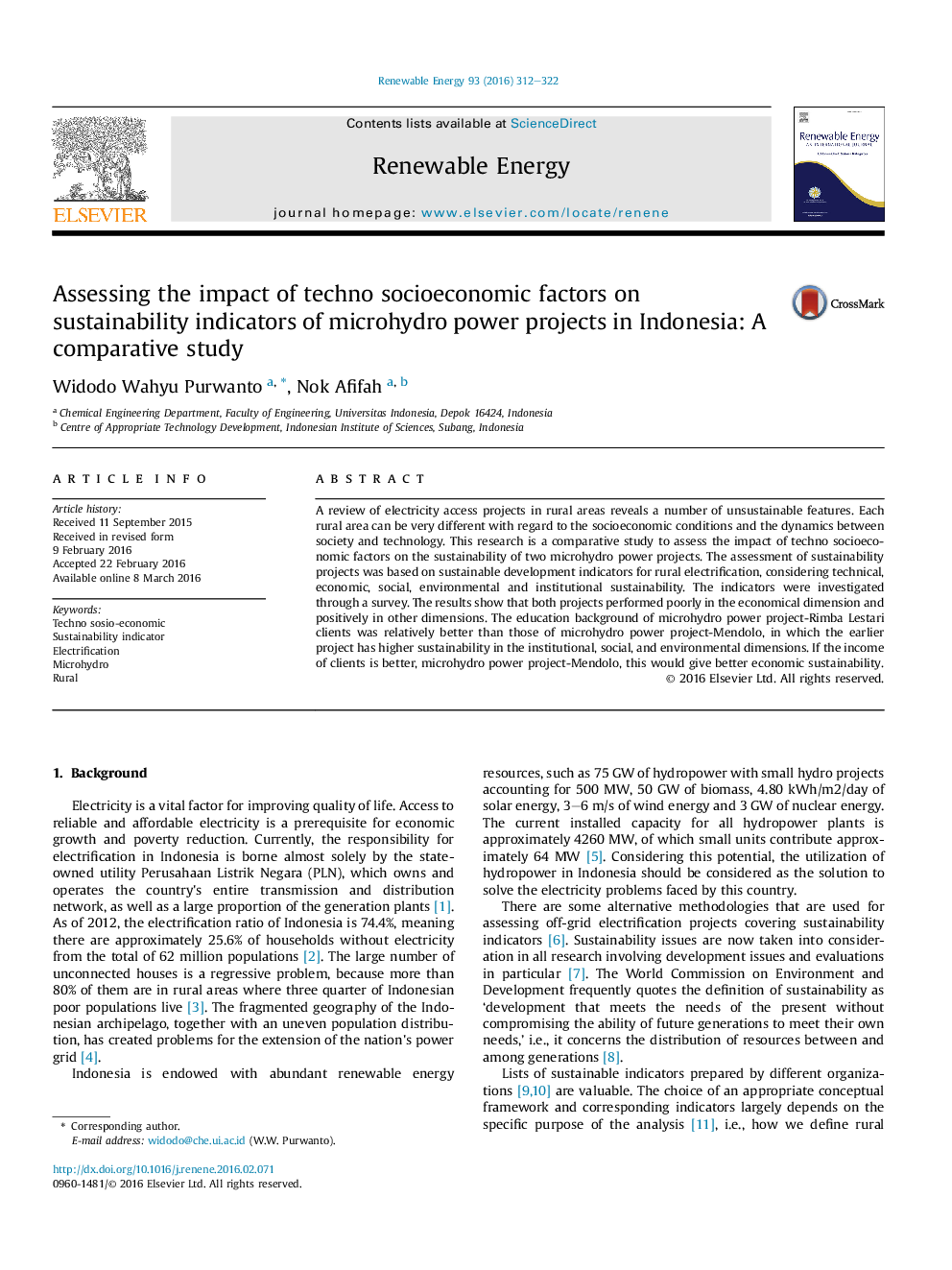| Article ID | Journal | Published Year | Pages | File Type |
|---|---|---|---|---|
| 299770 | Renewable Energy | 2016 | 11 Pages |
•Assessement the impact of techno socioeconomic on the sustainability indicator of MHPP.•The consumption pattern, income, and education have strong relation with the sustainability.•Capacity building is key factor of institution to assure the sustainability of MHPP.
A review of electricity access projects in rural areas reveals a number of unsustainable features. Each rural area can be very different with regard to the socioeconomic conditions and the dynamics between society and technology. This research is a comparative study to assess the impact of techno socioeconomic factors on the sustainability of two microhydro power projects. The assessment of sustainability projects was based on sustainable development indicators for rural electrification, considering technical, economic, social, environmental and institutional sustainability. The indicators were investigated through a survey. The results show that both projects performed poorly in the economical dimension and positively in other dimensions. The education background of microhydro power project-Rimba Lestari clients was relatively better than those of microhydro power project-Mendolo, in which the earlier project has higher sustainability in the institutional, social, and environmental dimensions. If the income of clients is better, microhydro power project-Mendolo, this would give better economic sustainability.
